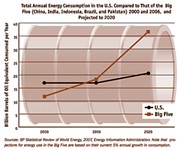Take the Money and Run
Travel and Payroll
By Robert Bryce, Fri., July 30, 1999
In addition, the campaign spent tens of thousands more on airplane tickets, hotels, and reimbursements to individuals who traveled on behalf of the campaign. One of the more prominent names among those reimbursed is former President George H.W. Bush, who was paid $4,465 for travel costs he incurred on behalf of his son the candidate.
Now that we know where and how Bush is spending his money, it's important to see whom he's spending it on. Bush's payroll is huge; the campaign now employs about 100 people in Austin, with another 25 spread across the country. To get an idea of the payroll, consider that the campaign paid the Internal Revenue Service more than $289,000 over the last three months.
It's no surprise that the biggest payroll checks are going to the people closest to Bush. The highest-paid staffer on Bush's payroll is campaign manager Joe Allbaugh, who was paid $19,637 during the reporting period. Allbaugh, who acted as Bush's chief of staff before going to work full time on the campaign, managed Bush's 1994 gubernatorial campaign. He is now drawing slightly more than $2,500 per week for his expertise.
After Allbaugh, the top-paid staffers are communications director Karen Hughes and chief strategist Karl Rove, each of whom is being paid slightly more than $2,100 per week. Following Hughes and Rove is former Bush spokesman David Beckwith, who was being paid about $1,900 per week until he left the campaign in mid-July after making disparaging remarks about the straw poll in Iowa. Sources close to the campaign say that Beckwith was also blamed for the bad press that Bush got after he briefly visited a conference for minority journalists in Seattle. Bush had been invited to the event, but declined to attend. After he was criticized for his decision, Bush showed up at the event for about 20 minutes, and his brief appearance was later jokingly called a "drive-by photo op." Whether Beckwith deserved the criticism, it was clear the events in Iowa and Seattle sealed his fate. Mindy Tucker, who is now handling many of Beckwith's duties, is being paid $935 per week.
While Hughes is definitely Bush's chief press operative, Rove is perhaps even more important to Bush's presidential hopes. Since April, the campaign has paid Rove $26,996, with the vast majority of that being payroll. Like Hughes, Rove is taking home $4,255 every two weeks. Interestingly, that's less than Allbaugh gets, although it's arguable that Rove is the more important player. After all, Rove has been with Bush longer than any of the other advisers. Rove has also designed Bush's direct mail campaign. When he still operated Karl Rove & Company, Rove was Bush's highest-paid consultant. During the first reporting period of the year, which ended March 31, the campaign paid Rove's company $220,000, or about a quarter of all of the campaign's expenses during the first quarter. In the most recent reporting period, the campaign paid Rove's company $1,724.
Bush's payroll shows who he trusts and who will be pushing the buttons if and when he gets to the White House. But the small expenses in Bush's report also tell a story. For instance, the campaign paid Austin lawyer/lobbyist Kent Hance $31.47 for a "direct mail expense." Hance is a Pioneer, one of the more than 100 people tapped by the Bush campaign to raise $100,000 each for the governor's presidential bid (see list below). Hance told the Chronicle that he got reimbursed for the postage expense to make sure that he stayed under the $1,000 contribution limit.
Hance, incidentally, is the only politician ever to defeat Bush in an election. He beat Bush when the two were vying for a congressional seat in 1978. He is also a minority shareholder in Waste Control Specialists, one of the companies vying for a chance to dispose of low-level radioactive waste in West Texas. Waste Control pushed hard during the last legislative session for a bill that would have allowed them to set up a waste disposal site in Andrews County. But the Legislature did not pass the bill the company was pushing. Hance says his business interests are not motivating him to support Bush, and that he was among the first donors to give money to Bush's first gubernatorial campaign.
But now that he's a Pioneer, Hance admits that he's running behind schedule in reaching the $100,000 goal. "I'll probably make it or come close. The problem is, I got started late. Half the people I called, somebody had already called them," Hance said.
Hance is also confident that his candidate will be the next president. "I don't have any doubts. It's the most phenomenal thing I've ever seen. I don't see him having much of a problem in the primary. I think he can beat Gore or Bradley." Will Bush win because he has raised so much money? Says Hance, "It certainly helps in getting the message out."
That fact is indisputable. So is the fact that, in politics, money matters. And if money equals votes, it appears that George W. Bush's huge campaign coffers have further solidified his position as the odds-on favorite to be the next president.
Got something to say on the subject? Send a letter to the editor.








